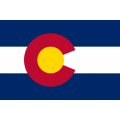If you’re looking for a new career, nursing is an excellent field to explore. Depending on your interests and educational time constraints, you could pursue one of several different career paths. The most popular nursing roles in New Hampshire are certified nursing assistant (CNA), licensed practical nurse (LPN), and registered nurse (RN).
Latest articles
The Nebraska healthcare community recognizes nursing as a vital service. Nurses enjoy competitive salaries, numerous job openings, and outstanding opportunities for advancement. Fortunately, nursing programs are abundant in Nebraska, especially for students interested in becoming a certified nursing assistant (CNA), licensed practical nurse (LPN), or registered nurse (RN).
With more Kansas residents able to afford health insurance, the healthcare field is expanding at a rapid pace. This growth provides opportunities for aspiring nurses to launch a new career. Some of the most popular careers in the nursing field are outlined below, along with important data on local salaries and the required level of education.
Utah’s aspiring nurses can pursue one of four distinct nursing roles: certified nursing assistant (CNA), licensed practical nurse (LPN), registered nurse (RN), or advanced practice registered nurse (APRN). Each role carries a unique mix of job responsibilities, educational requirements, and compensation. Utah is home to over 30 accredited nursing schools, so regardless of role, students can select from a breadth of quality nursing programs.
An emotionally fulfilling and rewarding career, nursing provides the backbone of the healthcare industry. A nurse makes important decisions, builds relationships, and helps patients recover from illness and injury, all through a unique blend of compassion and scientific knowledge.
There are several potential career paths to consider when pursuing your nursing education. Different career paths have different educational requirements in the state of Connecticut. Before you enroll in a nursing school, consider which path is most appealing to you.
Nursing assistants, also called nurse aides, typically work in hospices, nursing homes, and long-term care facilities. They specialize in personal care such as bathing, dressing, and feeding. In Connecticut, nursing assistants can expect to earn a salary of approximately $15 per hour.
Oklahoma has three primary nursing roles. In order of increasing responsibility and pay, these roles are certified nursing assistant (CNA), licensed practical nurse (LPN), and registered nurse (RN). Each nursing role carries distinct educational requirements.
Certified nursing assistants must complete a brief certificate program. This CNA certificate can be earned in eight to ten weeks at a number of community colleges and technology centers throughout Oklahoma. The state’s CNAs earn a median annual salary of $21,490.
The job market for nurses is promising in the coming years, particularly in South Carolina which is projected to experience a 24% nursing staff shortage according to the U.S. Bureau of Labor Statistics (BLS). For those looking to capitalize on this shortage and pursue a fulfilling career in nursing, several potential roles are profiled below in order of increasing seniority, educational requirements, and compensation.
The state of Colorado offers some excellent accredited nursing schools that provide students with high-quality training. A career in nursing offers many possible paths. You might start out as a nursing assistant, or perhaps choose to become a licensed practical nurse and then a registered nurse. Following this, it’s possible to specialize in a particular area, such as nursing anesthesia, midwifery, or nurse practitioner.
Home to a variety of programs, Minnesota offers prospective nursing students a wide array of options. In order to find the right educational path, it is important to understand the different roles available to candidates.










